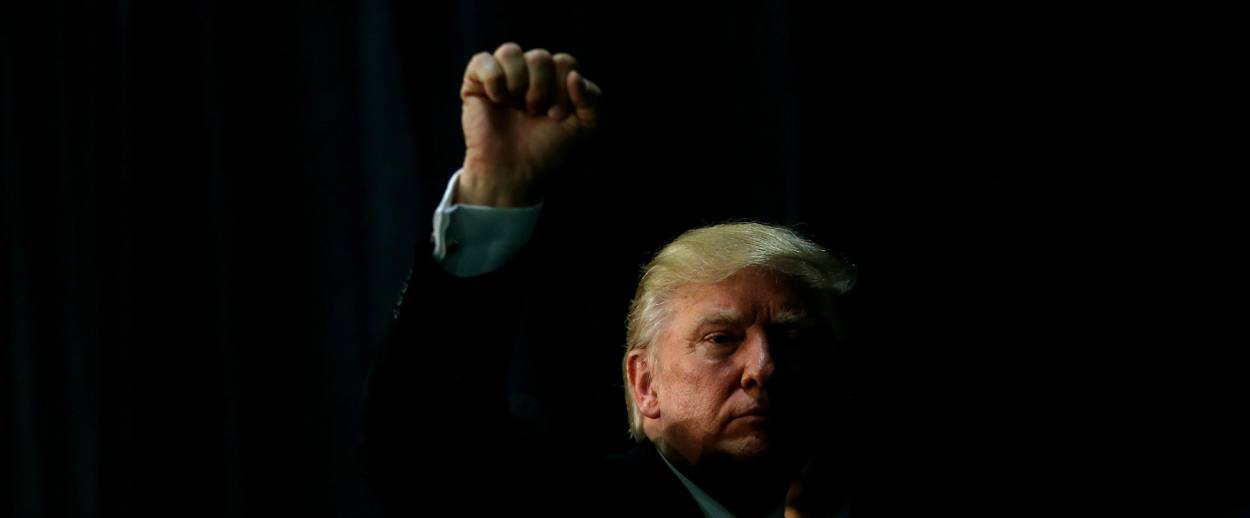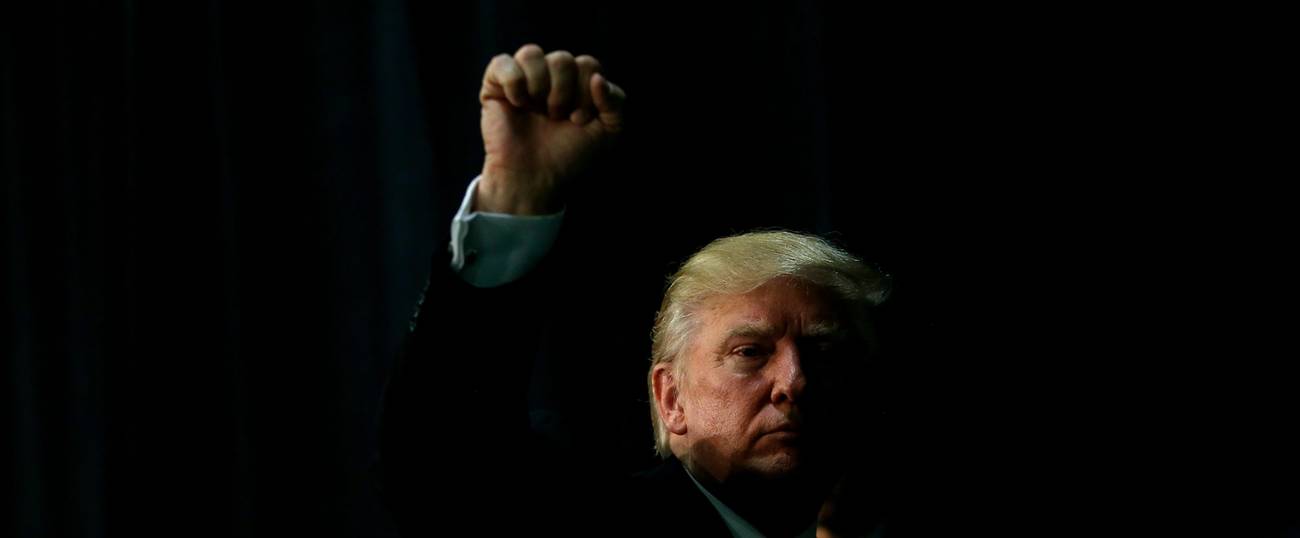As Donald Trump’s counterintuitive campaign for the presidency has gained momentum, commentators have pointed out parallels to Sinclair Lewis’s 1936 dystopian political novel, It Can’t Happen Here. The book probably has few contemporary readers, partly because it’s studded with references to cultural and political figures of the 1930s whose names no longer resonate with most Americans, but the novel carries frightening prospects to Trump’s potential leadership.
The novel’s premise: a fascist demagogue, the colorfully named Buzz Windrip, is elected president against seemingly improbable odds. Lewis proceeds, in a series of chapters including selections from Windrip’s narcissistic manifesto, Zero Hour, to terrify American observers of both European and homegrown fascist movements, as he documents how Windrip’s xenophobic ravings are implemented as government policy.
Yet in addition to the novel’s vision of racism, misogyny, and anti-intellectualism, anti-Semitism plays a distinctive and principal role. We all remember Trump’s visual dog whistle, to mix metaphors, as his campaign appropriated a picture of a six-pointed star from a message board trading in neo-Nazi imagery. It was a “sheriff’s badge,” a beloved symbol of little boys playing cops and robbers in their suburban backyards!
Unlike Trump, however, Buzz Windrip leaves no ambiguity in his adoption of this symbol. Describing the insignia of his “Minute Men” paramilitary corps, he writes:
Their uniform suggested the pioneer America…under Miles and Custer. Their emblem, their swastika…was a five-pointed star because the star on the American flag was five-pointed, whereas the stars of both the Soviet banner and the Jews—the shield of David— were six-pointed.
The fact that the Soviet star, actually, was also five-pointed, no one noticed, during these excited days of regeneration. Anyway, it was a nice idea to have this star simultaneously challenge the Jews and the Bolsheviks—the M.M.’s had good intentions, even if their symbolism did slip a little.
Jewish characters also figure prominently in the novel, including the distinguished victim Rabbi Dr. Vincent de Verez, his name implying both Sephardic ancestry and veritas, the Latin word for truth. Rabbi de Verez, in a terrible echo of Europe’s soon-to-be extinguished Jews, seems unable to respond with vigor to the assaults of Windrip’s secretary of education Dr. Macgoblin, who torments the venerable rabbi with references to the Protocols of the Elders of Zion and blood libel, adding as a disclaimer, “Ha, ha, just a joke, Rabbi.”
As is central to democratic political discourse, most suggestions that Trump and his supporters echo the rise of fascism in Europe leading up to the Second World War, are met with skepticism and warnings about facile comparisons. By concocting false or exaggerated analogies, these critics argue, American voters may be discouraged from confronting real threats to our freedom. However, these comparisons, while not literal, illuminate points of contact that are frightening enough. If Lewis described a country where “no one noticed, during these excited days of regeneration,” Jews today need to be alert and aware:
In the confusion of the summer and early autumn of 1937, local M.M officers had a splendid time making their own laws, and such congenital traitors and bellyachers as Jewish doctors, Jewish musicians, Negro journalists, socialistic college professors, young men who preferred reading or chemical research to manly service with the M.Ms…met their predictable fate.
Lewis’s novel, and its seemingly casual title denoting American innocence, holds a special warning for all the groups Windrip singles out for abuse. Jews are central to novel’s core warning, but ultimately the target Lewis describes is the American people.

